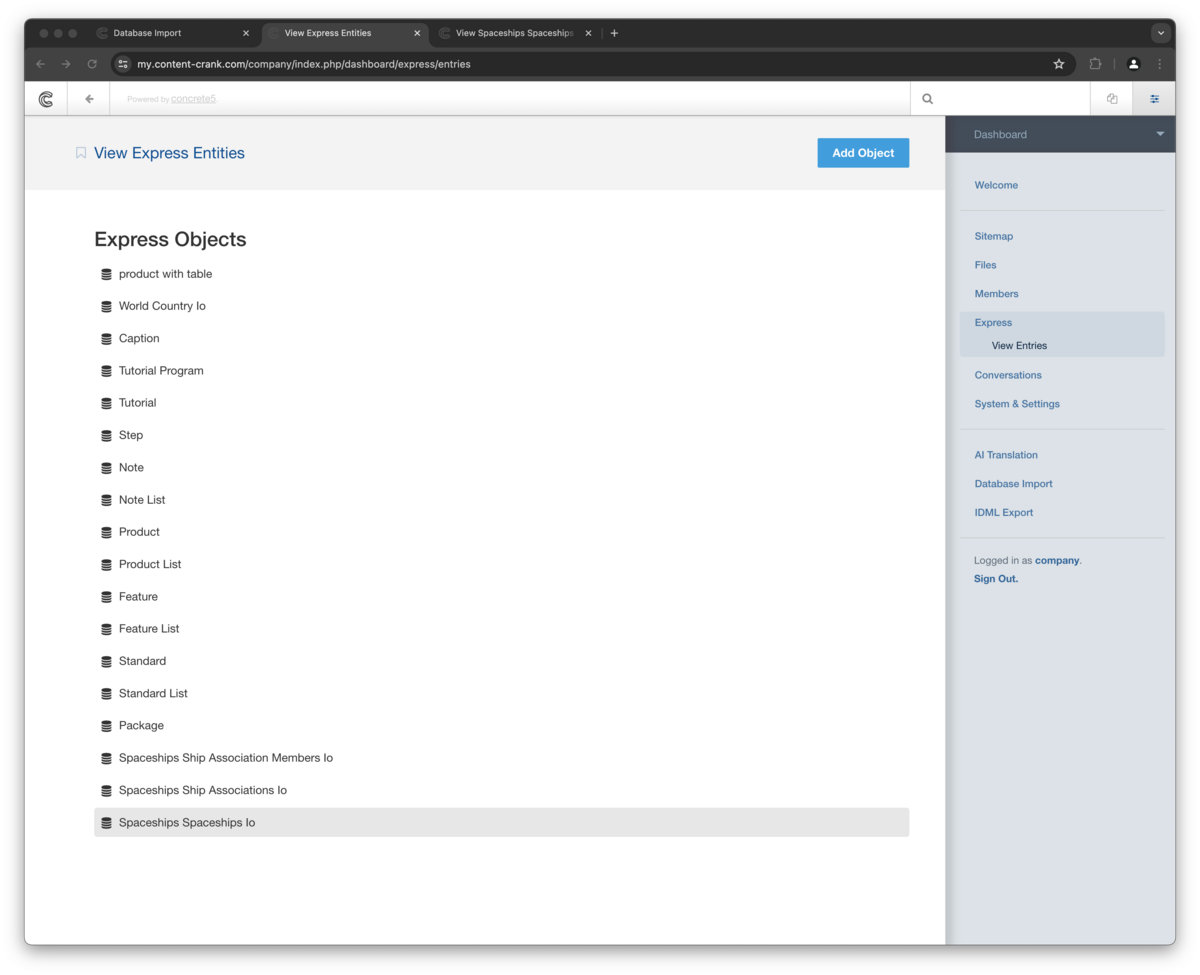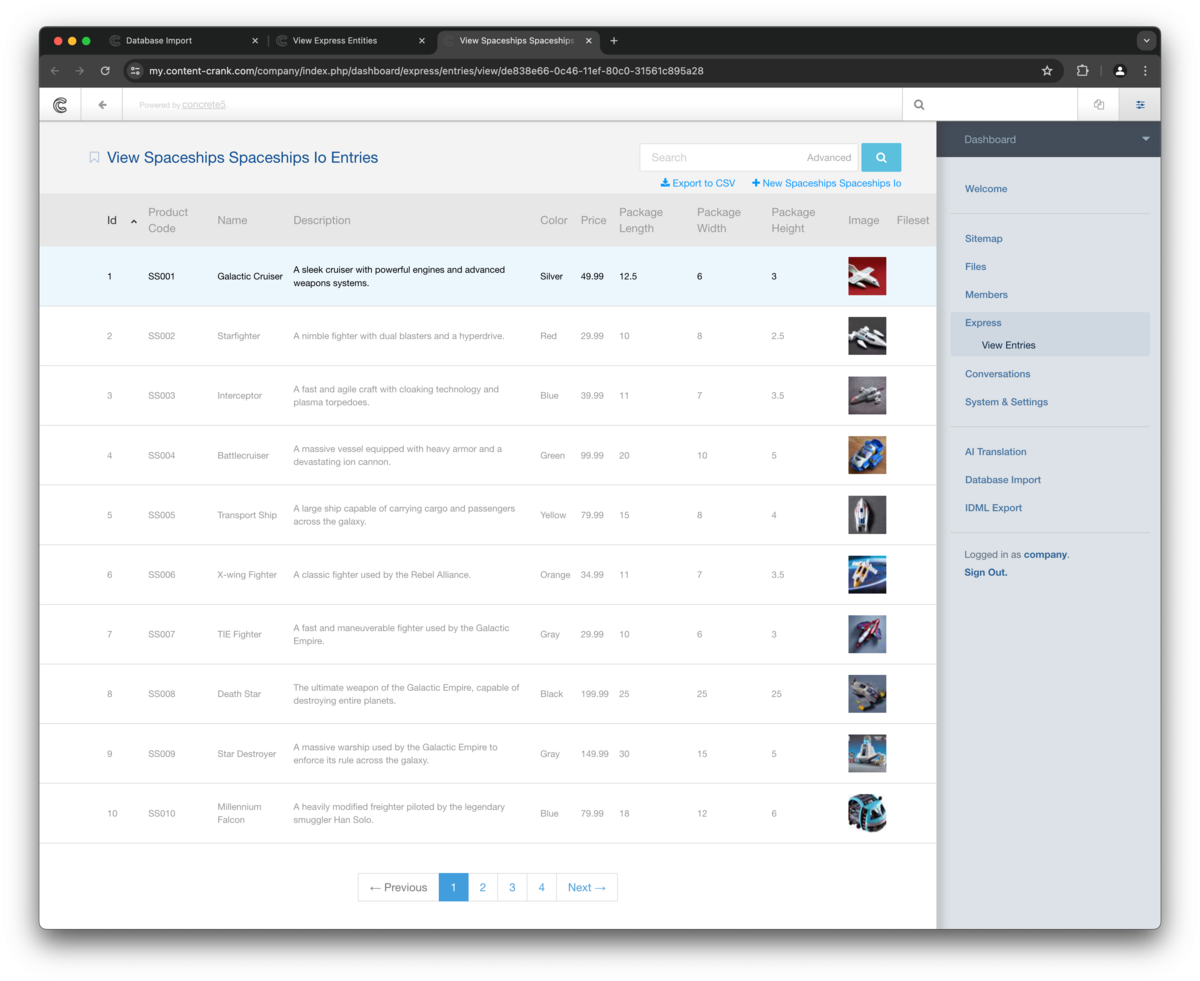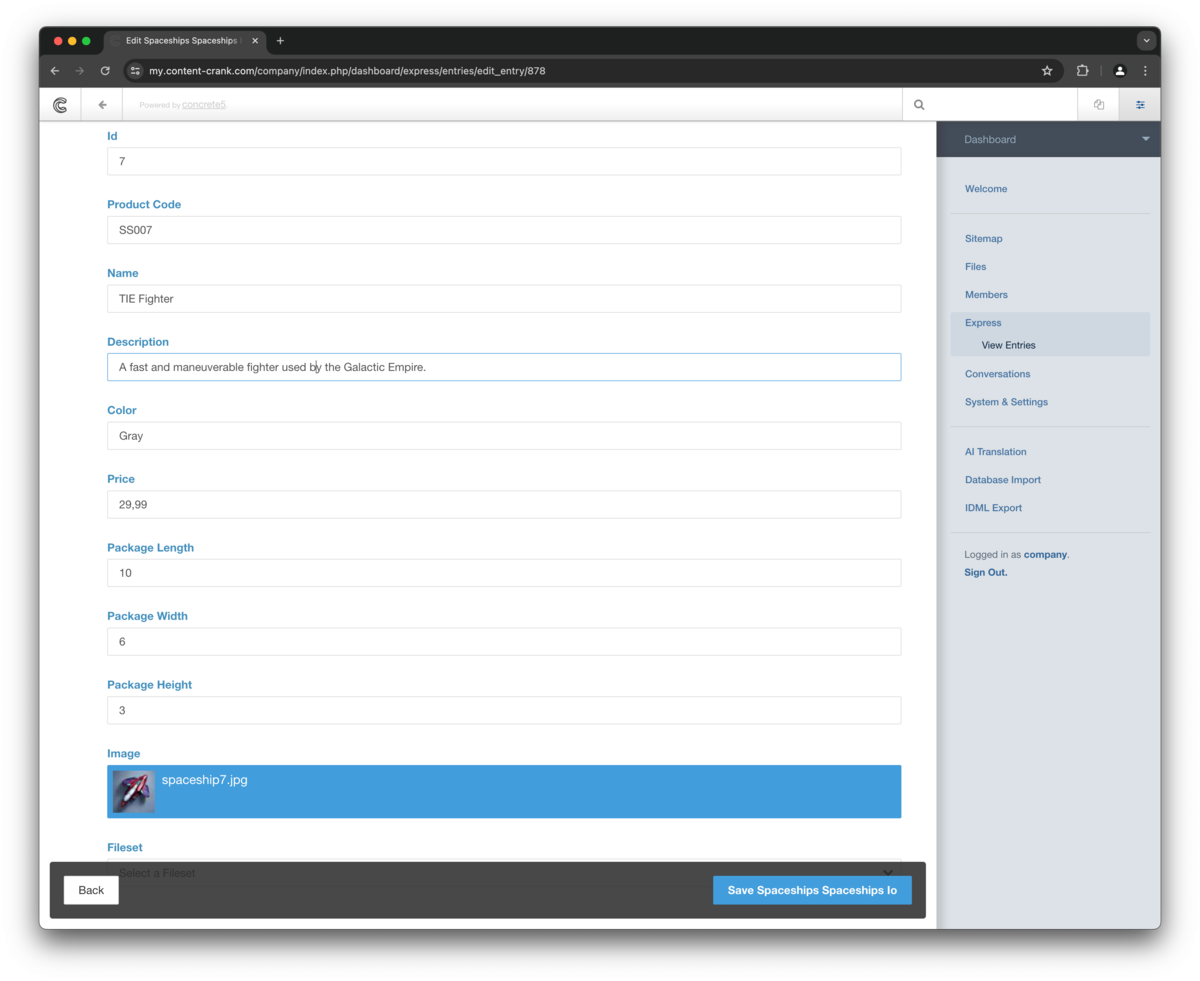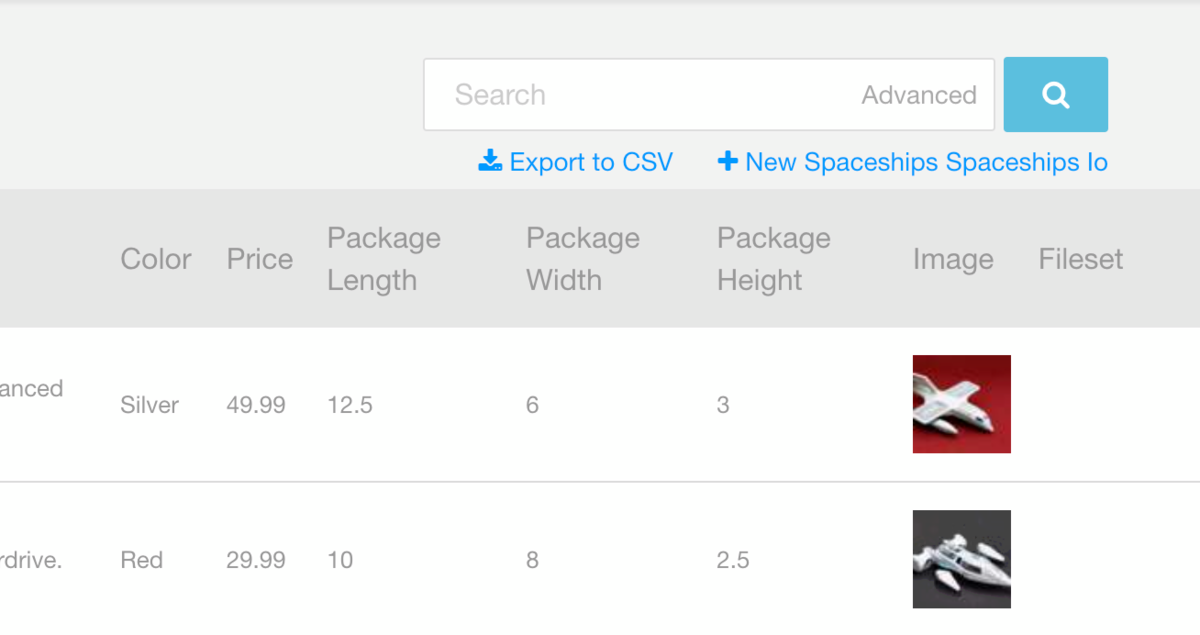Name
Description
Step
Step 1
Image

Name
Description
Open the dashboard with the link on the right top of the window and click express in the list of dashboard pages. You'll see a list of your express entities. We used the sample database 'spaceships' to import express entities and entries. Select an entity to show its entries.
Info
Step 2
Image

Name
Description
If the selected entity already has entries you'll see a list like in the screenshot. From here you can create new entries and edit existing ones. The entrylist can be sorted by clicking on the attribute names and filtered by using the search or advanced search on top.
Step 3
Image

Name
Description
Click on the entry you want to edit. You'll see a simple detail page of the selected entry. Hit the edit button to change any value. When you're done, save the changes with the button on the bottom right or go back without saving.
Step 4
Image

Name
Description
Go back to the entrylist and click the New ... link on the top right of the list. You'll be redirected to the new entry's form where you can enter values for each entry attribute.
Info
Warning
Tutorial Program Tutorialprograms
See tutorial programs below according to your filtering or search.
Filters:
| Name | Description | Tutorial |
|---|---|---|
| Express Data Objects | Express entities are data objects which can contain any combination of attributes and associations. Express entities can be created by a database import or from scratch. Some default entities are built in and ready to use as part of your ContentCrank. We prepared tutorials for the most frequently needed tasks. | Express Entries and Entities Entity settings Express content pages Express forms |
| Translation | Tutorials about the multilingual features. Learn about translating all your pages and express objects, editing translations and adding more languages. | Prepare Editorial Content for AI translation Prepare Express data for translation AI translation Edit Express translations |
| Content Creation | Tutorials about the workflow and best practices to create and edit content and structure. | Express content pages Article Pages |
| IDML Export | Tutorials for Export features. Learn to create templates from your designs and to export idml documents. | IDML Export |
| Database Import | Tutorials for using the database features. Learn about connected databases, dump imports and updating existing entries and entities. | Import a SQL dump Connect to a remote database Importing tables |
Tutorial Tutorials
See tutorials below according to your filtering or search.
Filters:
| Name | Description | Tutorial Program |
|---|---|---|
| Import a SQL dump | If you have a SQL file - a dump or database backup, you can import it using the Upload Database Dump feature. | Database Import |
| Connect to a remote database | If you want to pull data from a live database you can connect directly to it and update the objects later. | Database Import |
| Importing tables | No matter if you connected directly to a database or uploaded a dump, the importing follows the same rules. | Database Import |
| IDML Export | Learn to export your content to idml. | IDML Export |
| Express Entries and Entities | A quick explanation for express data objects. We use the spaceships example from the database import tutorials as reference. Imported express entities like the spaceships mirror their database table`s structure like columns, column types and column order. Generally put, express data objects create a logic layer between raw values, associations and their form of output. That means you can not only edit any value itself, the global structure and display of each express entry value can be customized. | Express Data Objects |
| Entity settings | Define how units, labels and associated columns are displayed. | Express Data Objects |
| Express content pages | Learn how to create content pages with express entities. Entries can be ordered, sorted and filtered in many ways. | Content Creation Express Data Objects |
| Express forms | You can create different forms for different contexts like a full blown product katalogue ouput with all columns and values or a simplified output with only selected attributes like images and headlines. | Express Data Objects |
| Article Pages | Article pages offer an easy way to create editorial content. | Content Creation |
| Prepare Editorial Content for AI translation | Create a new localization for your pages. | Translation |
| Prepare Express data for translation | Create a dictionary for your express content. | Translation |
| AI translation | Translate all your content in a few minutes to up to ~70 languages. | Translation |
| Edit Express translations | Learn where to edit and correct Express translations. | Translation |
| Start your ContentCrank trial | Create a personalized demo system to try out our services for a week. Use predefined use cases to see everything in action without creating your own data - which you still can. |

